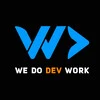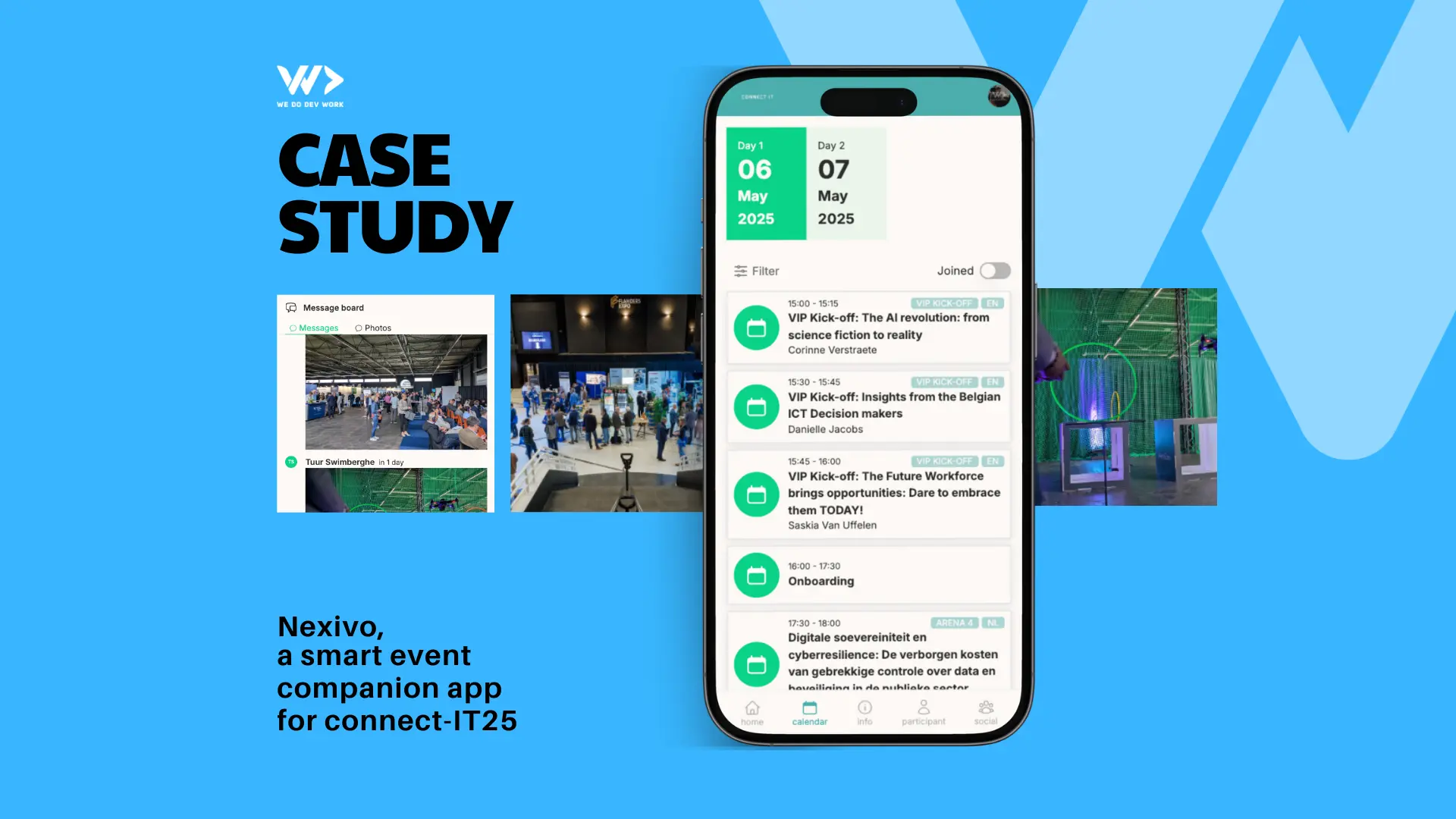
What is a software agency?

Technology advances rapidly, and it’s hard to keep up. Having a great idea is not enough for a business to succeed. You need the right digital tools to bring your ideas to life and compete in the digital world. That’s what a software agency can help you with, they specialize in the design and development of software solutions. We’ll answer some of the most asked questions about software agencies.
In general, an agency is an organization that provides specialized services to clients. Agencies are hired when the client doesn’t have the time, expertise or resources to do the work themselves. The agency often works with multiple clients as a long term business relationship. They provide a team of experts in different disciplines to focus on hands-on execution of the work. Think about marketing services, legal services, or recruitment services.
A software agency, such as We Do Dev Work, is a type of agency that specializes in developing digital solutions such as websites, mobile apps, custom software, and cloud-based platforms. The services they provide are consulting, design, development, testing, and maintenance of software. The team in a software agency consists of designers, DevOps engineers, project managers, QA testers and (most importantly) software developers.

Why work with a software agency?
Expertise: Software agencies employ experts in all fields of software development. These profiles are hard to recruit and sometimes aren’t required to work on a project full time. Take for example a DevOps engineer who is only required to step in when the product starts to scale. An agency can provide the expertise on demand at a fraction of the cost it would be when hiring in-house.
Scalability: Agencies can adapt to your project’s changing needs. Whether you need a small prototype or a large-scale platform, they have the resources to scale accordingly.
Time efficiency: Experienced teams will provide better quality software in a shorter period of time. Working together with a software agency also eliminates the time spent on bringing together these teams since they’re already established.
Cost effectiveness: Because of the points mentioned above, it is often more cost effective to partner with an agency. You do not need to put in significant investments in the hiring, payroll and infrastructure needed for a software development team.
Peace of mind: Outsourcing your digital work saves up management time which can now be spent focusing on the core of your business.

How does a software agency work?
While different agencies operate slightly differently, at We Do Dev Work we follow these five steps:
1. Discovery phase
The agency works closely with the client to understand their business goals, challenges and technical requirements. The agency starts to do research. Meetings are held between both parties to clear out details, a project scope is written out as well as a project plan. The agency will help to clarify the client’s ideas, define the user requirements and sometimes a proof of concept is developed to test if the idea is viable. After this phase, the foundation of a successful project is made.
2. Design phase
Once the requirements are clear, the design team creates wireframes and prototypes to visualize what the user interface could look like. A designer focuses on two things: user experience and user interface. The design not only needs to look good to the eye, an average user has to feel comfortable navigating through the interface for the first time.
The design will influence how code is written in all layers of the software stack. The team will gather feedback from both the client, developers, qa testers and test users to iterate over their designs and make improvements.
3. Development
Developers will begin programming the software using technologies best suited to meet the project's requirements. This includes long-term considerations such as maintainability and scalability. DevOps experts will handle the infrastructure setup, while frontend developers focus on building the end-user applications. The team consists of senior developers who maintain high quality standards and junior developers that boost the velocity.
While the development is happening, the team will discover missed requirements, opportunities and mistakes made already. These will be corrected to prevent snowball-effects over the whole project. This is called the agile methodology, during every phase of development, designers are still available to refactor the design. Clients are updated on a regular basis and feedback is used to keep the project aligned with the business goals.
4. Quality assurance
Before any software can be launched, testing is essential. The QA experts will go over every requirement to see if it is met in the final product. They are also testing for unforeseen cases, such as users who input wrong information, high network traffic spikes, application behavior with slow internet, etc. The QA expert often automates the testing process with frameworks that work well with the software stack to make sure the application still functions correctly after refactoring code later in the agile process.
5. Going live
Once the QA and client have approved the product, it is opened up to its intended audience. The agency will continue to provide ongoing support so that issues still found by the users are resolved quickly. If a product sees rapid growth, the DevOps engineer may be required to step in again and update the infrastructure to provide better service.
Once a product is live, the business relationship between the client and agency can develop in more ongoing projects to improve the product over time. The client may have held out on certain requirements to save cost. After a successful project gains traction, the client may see the value of new investments to grow even further.
Pricing models a software agency uses
When partnering with a software agency, there are different pricing models to choose from. The right model depends on the project scope, timeline and budget.
1. Time and materials (T&M)
In this model, the client pays for the actual time and resources spent on their project. This is very flexible and best suits projects with evolving requirements.
Pros:
Requirements can change, especially in long-term projects Lower cost per actual hour spent working on the project.
Cons:
Hard to predict long term cost Requires client involvement to manage scope
2. Fixed price
The client and agency can sign off on a detailed project agreement, scope and price. When a fixed price model is used, the agency makes a commitment to deliver within those boundaries defined by the agreement. If the project gets off track, the agency is responsible to catch up.
Pros:
Predictable costs Client doesn’t need to be involved much during the development
Cons:
Less flexible, requirement changes will incur additional costs Generally, the agency includes more management in the estimated cost
3. Dedicated teams
The agency can provide a team of experts for a monthly set price. The team will work exclusively on your project. It is good for long-term partnerships and large projects that have a relatively stable set of requirements.
Pros:
Full control over the team Requirements can change, especially in long-term projects Predictable monthly cost Lower cost per actual hour spent working on the project compared to the fixed price model
Cons:
Requires client involvement to manage scope
4. Hybrid models
Some agencies offer a Hybrid model, combining elements of the above models. For example, the initial discovery phase might be T&M, while the development phase could be Fixed-Price and ongoing support is a dedicated team.
Pros:
Balanced flexibility and cost predictability. Tailored to specific project needs.
Cons:
Requires careful planning and clear communication.
Conclusion
Partnering with a software agency can help bring digital ideas to life efficiently. An agency can play a crucial role in achieving your business goals by providing access to a multidisciplinary team, expertise in complex software solutions. Priced to your needs.
Whether you’re looking to explore the viability of an idea, scale an existing platform, or create a custom solution, a software agency like We Do Dev Work can provide the expertise and support you need every step of the way.




